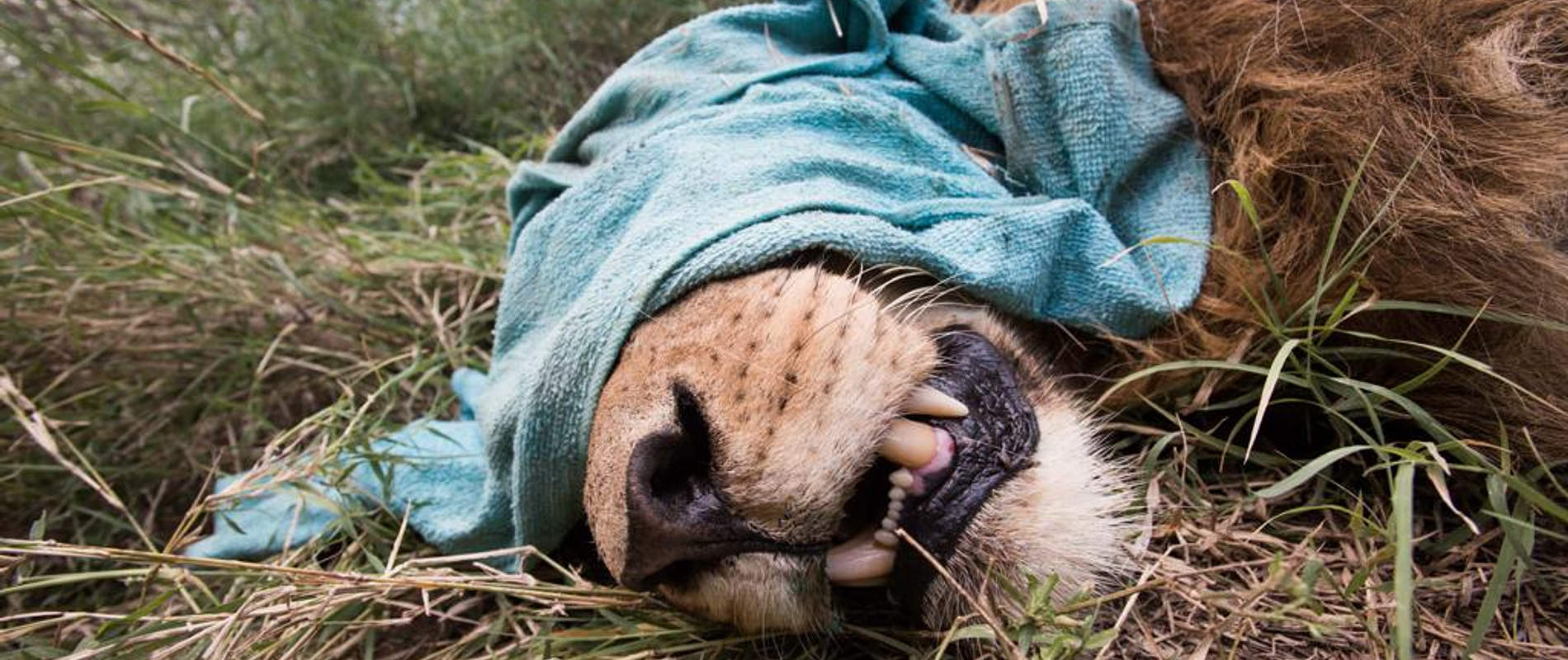Lions don’t have easy lives. Just one in eight males make it to adulthood, and even then, they face constant threats to their survival. Thus, when we received reports of an injured lion on Mpala Ranch, our SWT/KWS Mount Kenya Veterinary Unit sprung into action. The patient, a young male, had been embroiled in an altercation with another lion and was suffering from a debilitating wound on his foot.

The treatment unfolded on the 29th of September. Mpala Ranch staff kept an eye on the patient while our team drove over from their base in Nanyuki. Once they arrived on the scene, the challenge was to get close enough to dart him for treatment. Prudently, the lion had taken cover in dense undergrowth, and it took several hours before the team was able to coax him into open ground to land the dart. After about ten minutes, he succumbed to the anaesthetic — but rather disconcertingly, he fell asleep with his eyes wide open.


This is particularly alarming when treating a big cat, because it is hard to ascertain whether they are truly out. And so, the team carefully drove up to his side, gently prodding him to gauge any reaction. When Dr. Mijele was satisfied the anaesthetic had taken full effect, they alighted from the vehicle and commenced treatment.



The lion was in a sorry state, with two deep punctures to his front left foot. After cleaning out the wounds and stitching them up, Dr. Mijele administered heavy doses of antibiotics and anti-inflammatories. Finally, he packed the area with a generous coat of green clay to stave off further infection. The entire treatment took under an hour — in other words, far less time than it had taken to dart the patient! After the team administered the revival drug, the lion got to his feet and retreated back into the undergrowth to convalesce. Mpala Ranch management and rangers will monitor his recovery, and because of the Vet Unit's timely intervention, we are hopeful that he will make a full recovery.


This chap is one of 65 lion cases our SWT/KWS Mount Kenya Mobile Veterinary Unit has attended to since its inception three years ago. Between all SWT/KWS Veterinary teams, we have responded to 499 lion cases. While this particular patient’s predicament came about through natural circumstances, many of the wildlife we treat are harmed at the hands of humans. The rising threats of poaching and human-wildlife conflict are what led us to launch our first Mobile Veterinary Unit, in partnership with the KWS, nearly 17 years ago. This pioneering, field-level effort began in Tsavo, and has since expanded to five Mobile Veterinary Units and one rapid response Sky Vet that work across Kenya. KWS veterinarians are at the helm of each team, while we provide support staff, equipment, and fund the operating costs. Collectively, we have attended to some 7,000 wild patients — and this lion is but the latest recipient of our lifesaving care.


